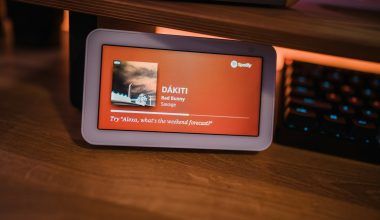When it comes to distributing music digitally, platforms like Deliver My Tune provide artists with the opportunity to get their music across numerous streaming services and stores. However, understanding the specific guidelines and restrictions for different store partners is crucial, especially when it comes to genres. Let’s explore whether there are any restrictions on music genres for certain store partners when using Deliver My Tune.
Overview of Deliver My Tune
Deliver My Tune is a popular digital music distribution service that helps artists, labels, and managers distribute their music globally across various streaming platforms and stores. It allows musicians to retain full control of their releases, including earnings, rights, and creative direction. Additionally, it offers a wide array of store partnerships, which range from mainstream streaming giants like Spotify and Apple Music to more niche and regional platforms.
Music Genre Flexibility on Deliver My Tune
One of the key benefits of using Deliver My Tune is the flexibility it offers to artists regarding the type of music they can distribute. In general, Deliver My Tune does not impose restrictions on the genres of music that can be uploaded. This means artists from any genre—be it pop, rock, hip-hop, classical, electronic, or even more niche categories like experimental or folk—can use the platform to release their music to a global audience.
Genre-Specific Guidelines for Store Partners
However, while Deliver My Tune itself may not impose any genre restrictions, some store partners might have specific guidelines regarding the content they accept. For example, certain regional platforms or specialized music services might focus on a particular genre, which could lead to restrictions for music that does not align with their audience’s preferences.
1. Mainstream Platforms (Spotify, Apple Music, Amazon Music)
Mainstream platforms like Spotify, Apple Music, and Amazon Music are generally open to all types of music. They are known for supporting a diverse range of genres and are frequently used by artists from all musical backgrounds. For these platforms, as long as the content adheres to copyright laws and community guidelines (such as avoiding offensive or hate speech), there are no specific restrictions based on genre.
2. Regional Platforms (Saavn, Gaana, Wynk)
For regional platforms like Saavn, Gaana, and Wynk, which cater largely to the Indian and South Asian market, there may be some implicit genre preferences. These platforms tend to prioritize music that resonates with regional tastes—such as Bollywood, classical Indian, or local folk music. While they do not necessarily reject other genres like rock or hip-hop, content in non-regional languages or unfamiliar genres might receive less visibility.
3. Niche Platforms (Beatport, Traxsource)
Niche platforms that cater to specific genres, such as Beatport for electronic music and Traxsource for house music, have clearer restrictions. These platforms focus on particular music communities and are unlikely to distribute genres outside of their niche. An artist producing country or pop music, for example, would not likely find a home on these platforms.
Content Guidelines Beyond Genre
In addition to genre, there are broader content guidelines that artists must adhere to when submitting music through Deliver My Tune to its store partners. These guidelines typically focus on:
- Originality: The music should not infringe on copyright or intellectual property rights.
- Appropriate Language and Themes: Content promoting hate speech, violence, or explicit material without proper labeling might be restricted by certain platforms.
- Audio Quality: Some stores might have quality control measures in place to ensure that the audio files meet a specific standard before publication.
The Role of Store-Specific Curation
It’s also important to note that some platforms use editorial curation, which can affect the visibility of certain genres even if they are accepted. For instance, platforms like Apple Music have curated playlists that often lean toward mainstream or trending genres. As such, less mainstream genres may still be available but may not receive the same level of promotion.
Strategies to Overcome Genre Restrictions
If artists encounter genre restrictions on a particular platform, there are a few strategies they can use to overcome these challenges:
- Target Multiple Platforms: Deliver My Tune allows artists to distribute their music across a wide array of platforms. If one platform restricts a particular genre, others might welcome it. Diversifying distribution ensures that the music reaches the right audience.
- Regional Adaptation: For artists with international aspirations, considering the regional preferences of specific platforms can help. If a platform caters more to local tastes, artists might choose to adapt their sound or include regional elements to increase their chances of success.
- Collaborating with Genre-Specific Platforms: Artists working within niche genres should focus on platforms that specialize in their music style. For example, electronic music artists would benefit from prioritizing platforms like Beatport, where their genre is celebrated.
While Deliver My Tune itself offers a broad, genre-inclusive service for distributing music, certain store partners may have guidelines that cater to specific genres or content. Mainstream platforms are typically open to all genres, but niche and regional platforms may have preferences that limit visibility or acceptance for certain music styles. By understanding these restrictions and leveraging Deliver My Tune’s diverse network of partners, artists can strategically distribute their music to maximize their reach and success.
In the dynamic world of digital music distribution, knowing where your music fits best can make all the difference. As an artist, being aware of these genre-specific guidelines will help you navigate the ever-evolving landscape of online music platforms effectively.




